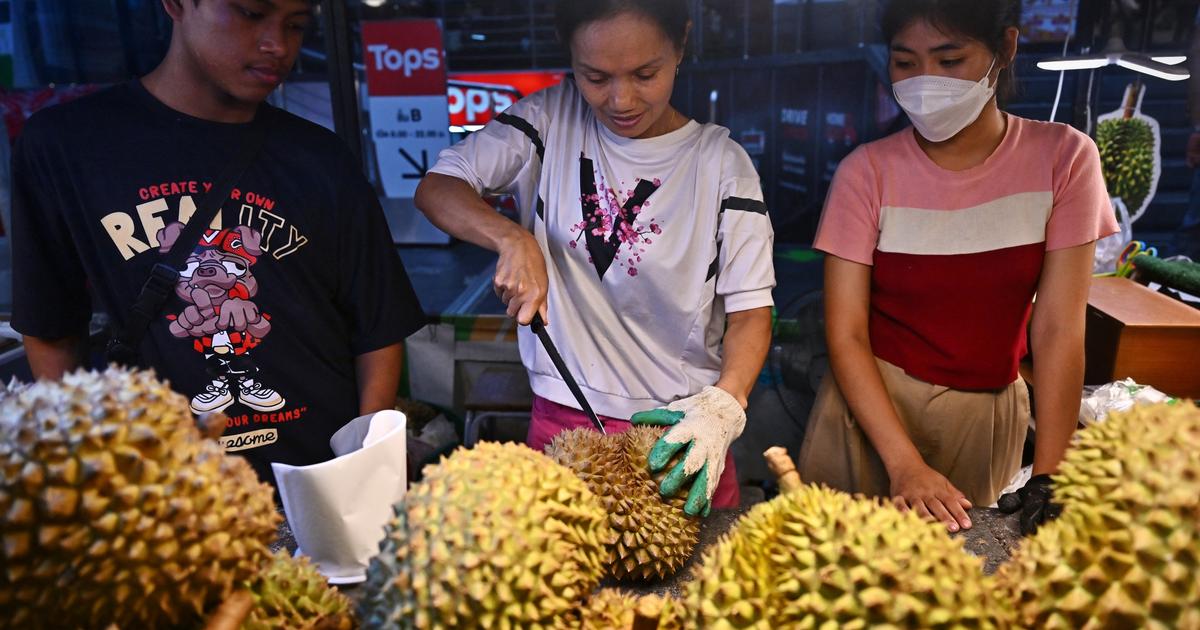On the market stalls of Thailand, Vietnam or the Philippines, it is impossible to miss the “king of fruits”.
Oval in shape, recognizable by its greenish-colored thorny shell, durian is particularly appreciated by inhabitants of Southeast Asia for its sweet and creamy flesh.
The fruit is eaten fresh and raw, sometimes accompanied by sticky rice and coconut milk or in the form of ice cream or cake.
To discover
Tailor-made trips: discover the offers from our partners
If its taste seems to be unanimous, the same cannot be said of its smell which, once the fruit is cut, is often described as pestilential.
It is believed to be due to a volatile molecule, ethanethiol, a sulfur compound.
Accompanying durian with a glass of beer or wine can also be risky because the sulfur slows down the breakdown of alcohol.
At the beginning of 2023, a Turkish Airlines flight connecting Istanbul to Barcelona had to turn around because of the presence of a durian in the hold, the smell of which reached the noses of passengers in the cabin.
A hundred euros fine (at minimum)
Because of its unpleasant scent, the fruit is banned from most public places.
In many hotels, posters remind you of the ban on carrying durian, including in your room.
The smell can persist for several hours or days and disturb neighbors.
When checking in, the receptionist sometimes even has you sign a document in which you agree to respect this rule.
In public transport, the ban is also widespread: in train stations, airports and metro stations in Asia, the fruit has its own prohibited sign just like cigarettes.
It is better not to deviate from the ban.
In hotels, fines can amount to around a hundred euros (at least), or even up to 500 Singapore dollars (€345) in the Singapore metro, a country known for its strict rules.
Some hotels in Southeast Asia ban another fruit, mangosteen, but not because of its smell.
Cultivated in Thailand, it can indeed leave indelible stains on bedding.
IN VIDEO
- How to connect Europe to Asia by train?

